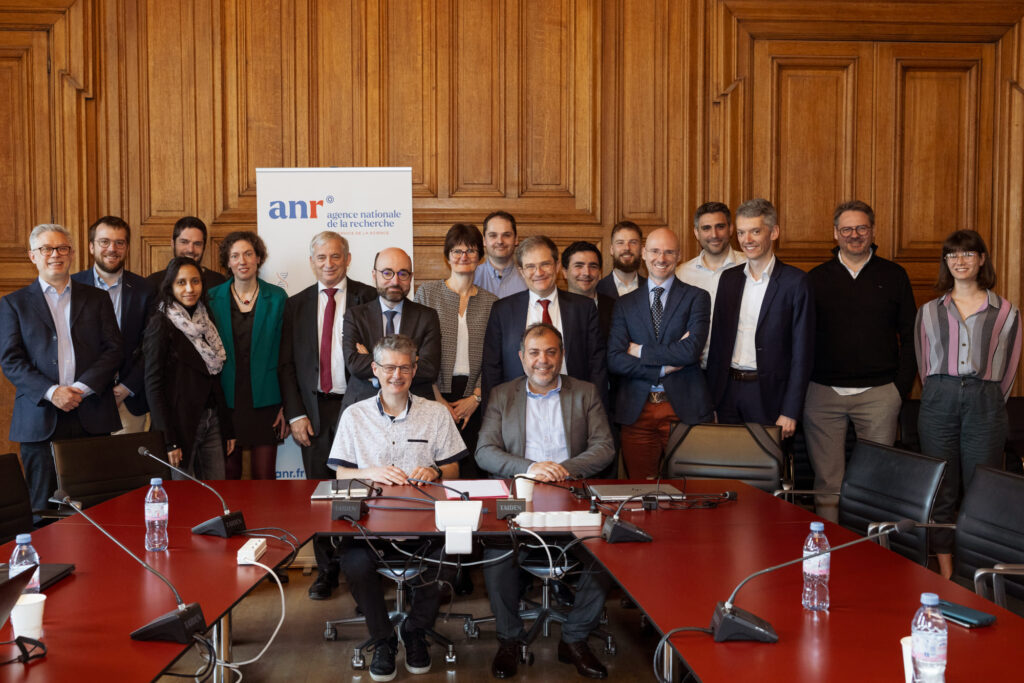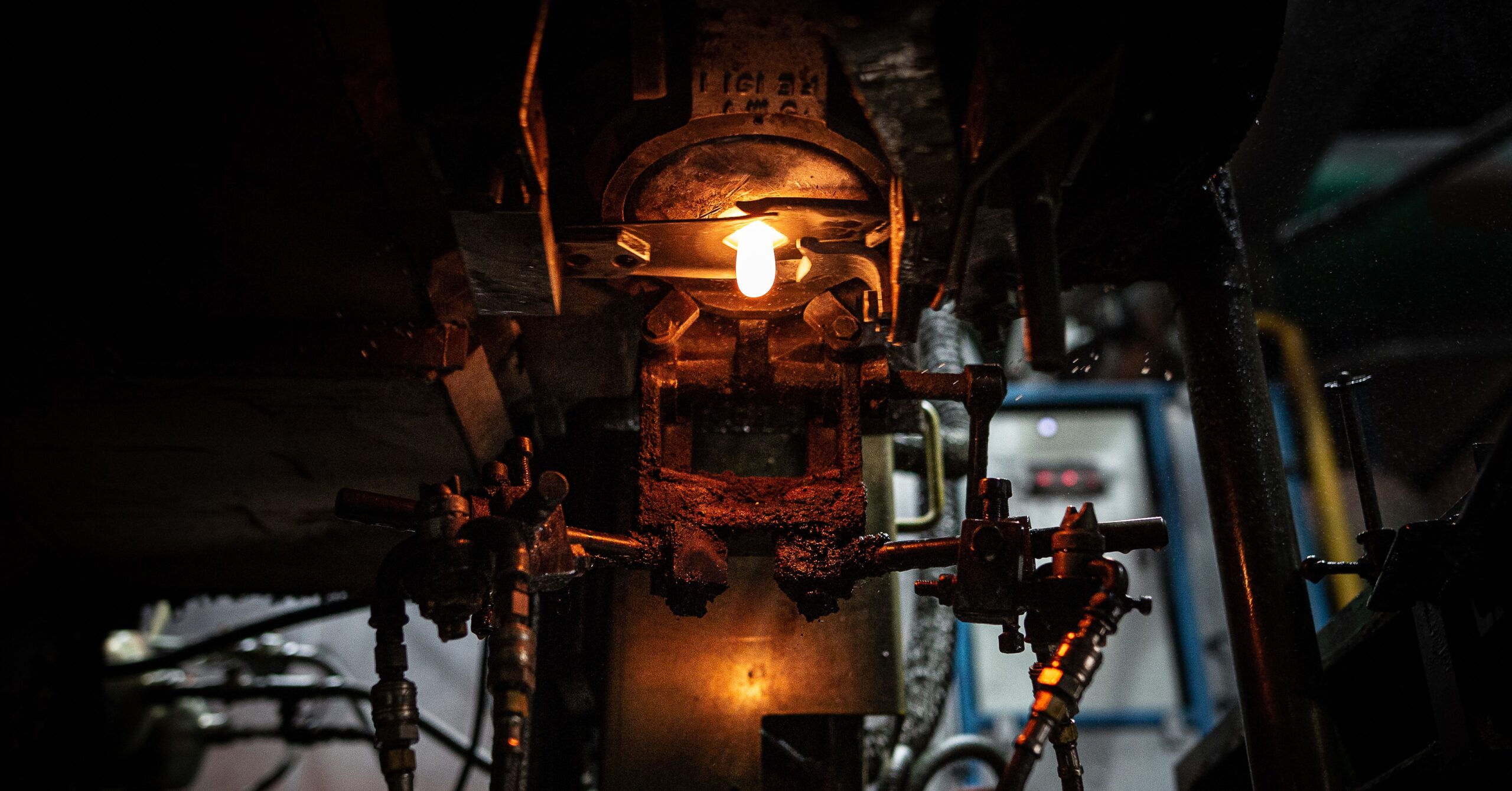AI & Digital Twins for the optimization of industrial furnaces: inauguration of the ANR TwinHeat Industrial Chair


Coordinated by Elie Hachem, Director of the Center for the Development of Materials (CEMEF), and Franck Pigeonneau, Teacher-Researcher at CEMEF, this project is funded by the French National Research Agency (ANR) to the tune of one million euros to meet the scientific and ecological challenges of transforming industrial glass processes.
The TwinHeat industrial chair has joined forces with four major national industrial groups facing the technological challenges posed by the reduction of their carbon footprint: Saint-Gobain, Verallia, Fives and Pochet, in order to create the digital twin of their own furnaces.
In addition to these four industrialists, SC&C, a business software publisher and specialist in industrial furnace simulation, will contribute its expertise to the dissemination of the digital twin solution developed by the chair.
The project aims to optimize furnace operating conditions, study the optimal combinations of heating parameters, minimize energy consumption and adapt to the energy transition. It will enable the development of innovative solutions specific to industrial needs while guaranteeing the quality of finished products.
In this context, a precise digital framework coupled with AI to design new furnaces and optimize the control of existing furnaces provides tools to support their commitment to zero carbon by 2050.
Mines Paris – PSL is recognized as a world expert in digital solutions for shaping. The strategy is to pursue and combine this expertise with artificial intelligence. The TwinHeat Chair contributes to a long-term vision as a basis for reliable simulations of furnace processes to help decision-making more quickly, minimize energy consumption and thus optimize thermal processes.
Elie Hachem, Director of CEMEF, holder of the TwinHeat Chair
The glass industry as a whole needs solutions to reduce its energy consumption and to consider new energy sources (electricity, H2, bio-gas, etc.). The chair is an opportunity to explore new modalities. Digital transformation is the other asset of the project. How can artificial intelligence provide novel solutions?
Two simultaneous actions are necessary to achieve this breakthrough: first, the development of a revolutionary digital strategy assisted by machine learning for the accurate prediction of furnace fluid dynamics under well-defined and controlled conditions Secondly, the development of an integrated deep reinforcement learning strategy for the furnace control system to be used as the basis for an automatic control and optimization system, in particular through intelligent predictive models.
“The ANR Industrial Chair program has a threefold objective: to build and structure collaborative research projects in priority and strategic areas for public and private actors via a strong and sustainable partnership; to enable internationally renowned teacher-researchers or researchers to work on an ambitious, innovative and industrially relevant research program; and finally, to welcome and train young scientists in master’s and doctoral programs as well as post-doctoral students. The TwinHeat Industrial Chair, co-financed by the ANR to the tune of €500,000, perfectly illustrates the ambition of this specific mechanism for supporting public-private partnership research. We are delighted with this collaboration, which addresses the challenges facing the glass industry. “It aims to optimize the operating conditions of existing industrial furnaces, study the optimal combinations of heating parameters, minimize energy consumption and adapt to the energy transition to carbon-free energy sources,” says Dominique Dunon-Bluteau, Scientific Advisor to the ANR’s Delegate General Directorate for Science.

The TwinHeat industrial chair, supported by the French National Research Agency (ANR) with funding of one million euros, proposes to use digital twins...